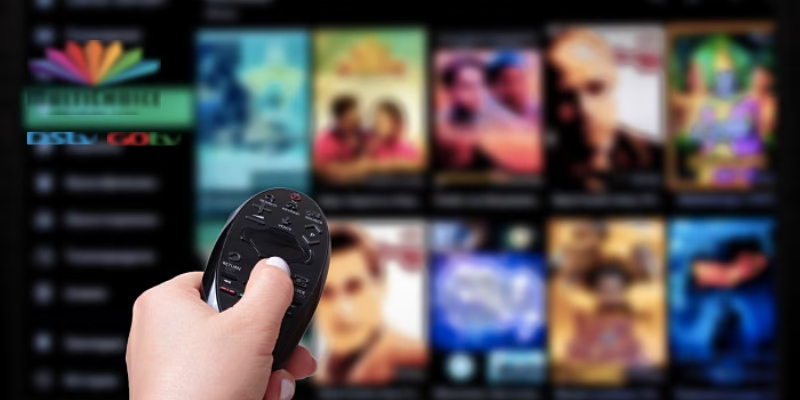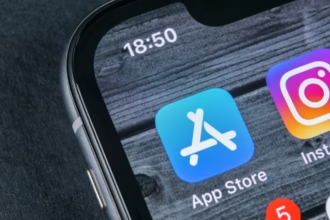In a bold move to keep up with changing consumer habits, DStv tests weekly subscriptions in Uganda, with possible expansion to Nigeria in the coming months. This new plan could change how millions of Nigerians pay for TV.
Why DStv Is Making a Big Shift
The traditional monthly subscription model may be fading. As economic challenges bite harder across Africa, many users now find it difficult to commit to full-month payments. Recognising this struggle, DStv tests weekly subscriptions as a more flexible option for viewers.
Calvo Mawela, the CEO of MultiChoice (the parent company of DStv), explained that the company started this weekly payment test about seven weeks ago. The idea is to give users more breathing room, similar to how prepaid airtime changed the mobile industry.
What Exactly Is the New Weekly Subscription Plan?
Under this new trial, DStv customers can now choose to pay week-by-week instead of shelling out money for the full month. This weekly payment option is not yet available in Nigeria, but if the trial goes well in Uganda, it may launch here next.
DStv tests weekly subscriptions to better match the cash flow of its customers. Instead of waiting till month-end or skipping TV access altogether, users can now enjoy their favourite channels with smaller, easier payments.
Why Nigeria Is a Key Market
Nigeria is DStv’s largest market in Africa. But in the past two years, MultiChoice has lost over 1.4 million subscribers in Nigeria alone. The economic downturn, inflation, and rising costs have pushed many customers to drop their subscriptions.
That’s why DStv tests weekly subscriptions, to bring back lost users and attract new ones. If successful in Uganda, Nigeria could be the next in line to benefit from this plan.
Will the Weekly Plan Be Cheaper?
That’s the big question. On paper, paying weekly may seem more affordable. But over time, it could add up to be the same or even more expensive than the monthly plans. Still, the key selling point is flexibility. When money is tight, small weekly payments feel more doable than paying a large lump sum at once.
DStv’s Changing Strategy: More Than Just Weekly Payments
Beyond payment options, MultiChoice is also looking into other ways to win back customers:
1. Sports-Only Packages
Many people only subscribe to DStv for sports, especially during football seasons. MultiChoice is now exploring plans that will allow users to pay only for sports content, without the full entertainment bundle.
This idea isn’t new. Back in 2021, DStv tested a “Flex” product that allowed subscribers to buy basic entertainment and add sports channels on top. Though it didn’t gain traction back then, it’s back on the table. This will be a good addition as DStv tests weekly subscriptions.
2. Custom Channel Add-Ons
DStv is also researching an option where customers can buy a base package and then add specific channels they want. While they’ve said a full à la carte model might not work, some level of personalisation could be coming.
3. Streaming and Showmax Struggles
While DStv Nigeria remains strong in branding, its streaming platform, Showmax, has seen a dip in users. With global competition from Netflix and Amazon Prime, DStv is under pressure to improve its digital offerings.
DStv tests weekly subscriptions as just one part of a broader transformation to remain relevant in this competitive space.
What This Means for the Average Nigerian
If this weekly subscription model launches in Nigeria, it could change how we watch TV:
- Students and low-income earners may find it easier to subscribe.
- Families can prioritise certain weeks for entertainment.
- People can take a break during off-season and return later without wasting money.
Overall, DStv tests weekly subscriptions to make its platform more accessible for the average Nigerian, who may be tired of rigid payment structures.
Also Read: Why Digital Creators Are Nigeria’s New Entrepreneurs in 2025
MultiChoice’s Financial Reality
According to their recent financial report, MultiChoice saw an 11% decline in subscription revenue and lost 1.2 million subscribers across Africa. South Africa’s revenue held steady, but most losses came from the rest of Africa, including Nigeria.
Interestingly, the company did report a profit, thanks to the sale of a 60% stake in its insurance business to Sanlam in 2024. But despite the profit, the revenue dip shows why this new pricing model matters.
How Soon Could Nigerians Get Weekly DStv Plans?
While DStv tests weekly subscriptions in Uganda, there’s no fixed timeline for the Nigeria launch. However, if feedback and adoption are positive within three to six months, Nigerians could see this model rolled out before the end of 2025.
MultiChoice has made it clear that Nigeria is a priority. With a large population and huge entertainment demand, the country is a natural next step.
What About GOtv Users?
DStv isn’t the only platform under MultiChoice. GOtv users might also benefit if this plan expands. Just like DStv, GOtv’s weekly plan could offer flexibility to users who only watch TV on weekends or certain days of the week.
So while the focus is on DStv now, GOtv could easily follow if things go well.
Can This Help DStv Beat Netflix and Other Streaming Platforms?
Streaming is now the go-to option for many Nigerians, especially the youth. Netflix, Amazon Prime, YouTube Premium, and other platforms have gained massive ground. But they still rely heavily on internet access and data costs.
DStv already has a strong presence in areas where stable internet is a luxury. By offering weekly payments, they can stay competitive and relevant without needing to become a full-on streaming service.
In fact, by giving users more pricing options and local content, DStv tests weekly subscriptions as a direct counter to the “cancel anytime” nature of streaming apps.
Challenges Ahead
Despite the hope, there are still some concerns:
- Will weekly plans encourage binge-watching followed by cancellations?
- Will it create more admin work and confusion for users?
- Will the pricing be truly affordable?
These are all issues MultiChoice will need to solve if the model is to succeed in Nigeria.
Also Read: Multichoice Loses 1.4 Million Subscribers in Nigeria Within Two Years Amid DStv Price Increments
A Smart Move or Too Late?
DStv knows the game is changing. People no longer want to be locked into long, expensive commitments. Flexibility is key. So when DStv tests weekly subscriptions, it’s a smart move that could help them bounce back.
The success of this plan depends on three things:
- The actual weekly pricing
- How easy it is to subscribe and pause
- Whether Nigerians feel it truly meets their needs
If done right, DStv could regain its crown as the top choice for African TV. But if it’s rushed or poorly priced, it could backfire.
As we wait to see the results from Uganda, all eyes are on how MultiChoice will adapt for its largest and most demanding market; Nigeria.






